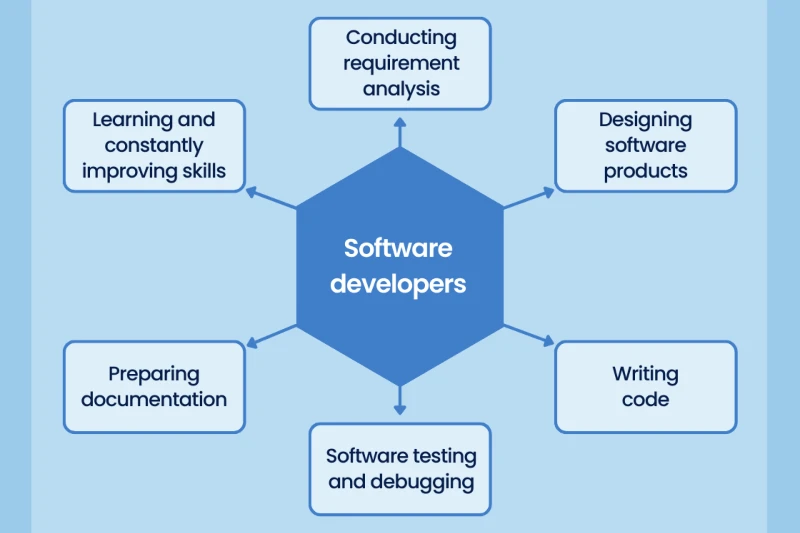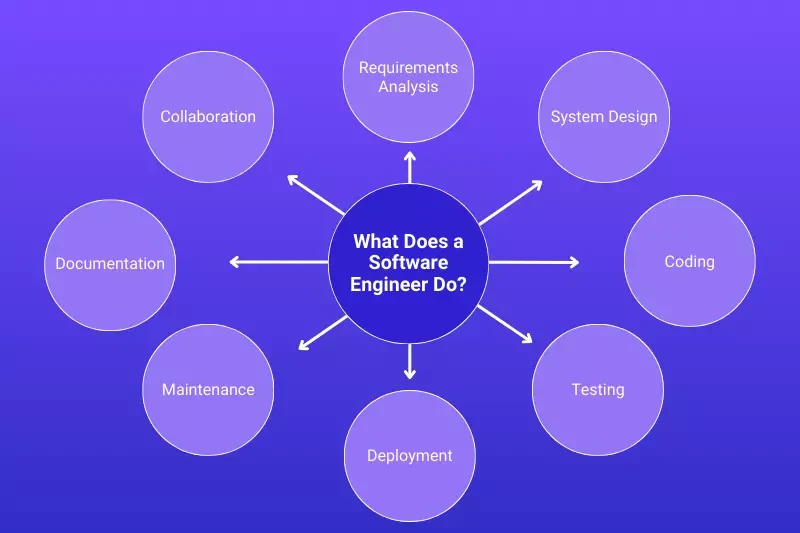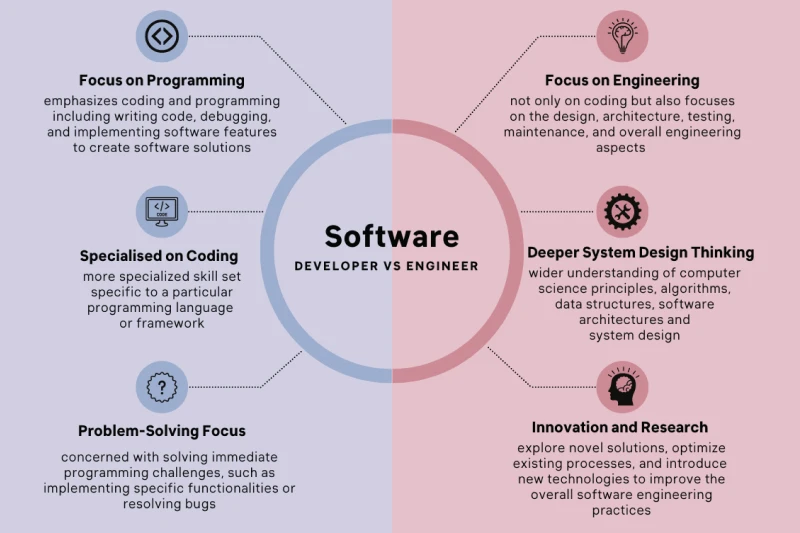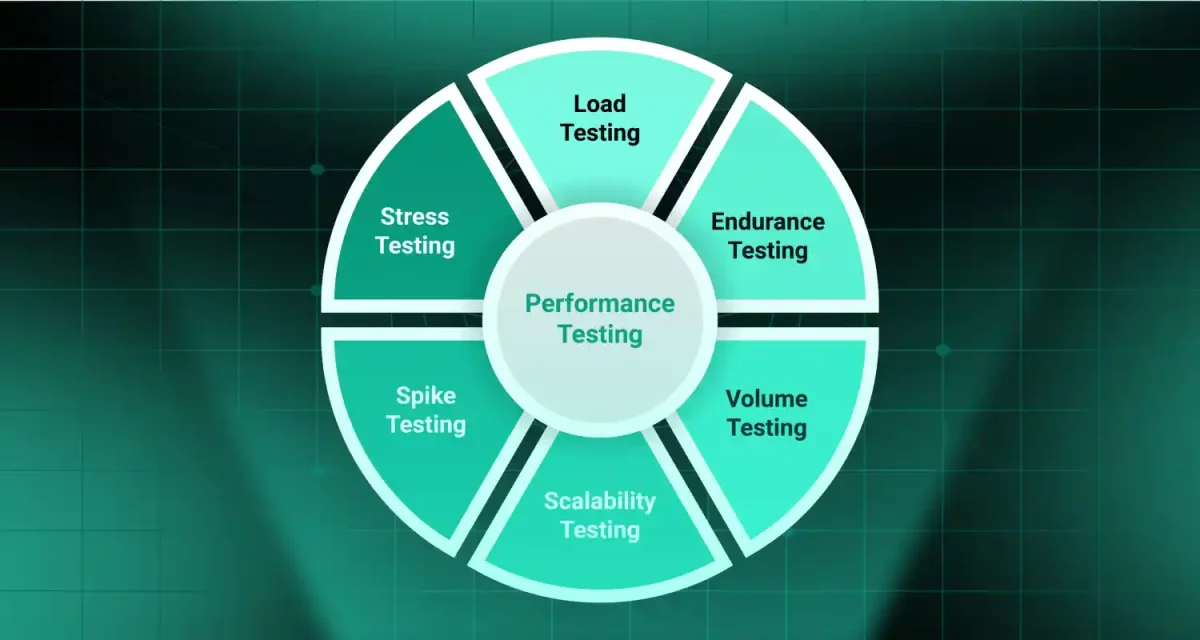
The tech industry is growing rapidly, but many still ask: What is the difference between software engineer vs software developer, and how does this impact their technology choices? While these roles share similarities, they differ in scope, responsibilities, and approach to problem-solving. This article will break down these distinctions to help you navigate career choices or hiring decisions in the software field.
1. What is the software developer?

The software developer is responsible for writing, testing, and debugging code to create functional applications. They focus on building software based on pre-defined requirements, working closely with designers and other team members to bring ideas to life.
Key skills of a software developer include:
- Proficiency in programming languages like JavaScript, TypeScript, Python, or Java
- Strong problem-solving abilities and debugging skills
- Attention to detail to ensure clean, efficient, and maintainable code
Developers are like artisans, perfecting their code to ensure smooth functionality and a great user experience.
Read more >>> 8 Types of Software Development in 2025: A Comprehensive Guide
2. What is a software engineer?

A software engineer takes a broader approach to software creation, designing, and maintaining entire systems rather than just individual applications. They apply engineering principles to ensure scalability, security, and performance.
Key skills of a software engineer include:
- Knowledge of software architecture and system design
- Understanding of design patterns and engineering principles
- Experience in project management and cross-team collaboration
Engineers think beyond just writing code but they build robust, long-term solutions that fit into a bigger technical ecosystem.
3. Key differences in roles and responsibilities

3.1. What does a software developer do?
A software developer creates, tests, and improves software applications. Their primary focus is writing clean, functional code that meets project requirements. Developers work closely with designers, product managers, and fellow developers to build user-friendly software.
Their daily tasks include:
- Writing and testing code to implement software features.
- Debugging and fixing software defects to ensure smooth functionality.
- Implementing user interfaces and improving the user experience.
- Collaborating with designers and developers to bring ideas to life.
- Following coding standards to keep the codebase maintainable and efficient.
When choosing a programming language, developers often consider project needs, performance, and team preferences. For example, JavaScript is widely used for frontend development, while TypeScript offers additional type safety and better scalability for larger projects.
Read more: TypeScript vs JavaScript – Which Is Better for Your Project?
3.2. What does a software engineer do?

A software engineer looks at software development from a wider perspective. While they also write code, their primary focus is designing scalable, maintainable, secure software systems. Engineers consider the big picture, ensuring that different system components work together efficiently.
Key responsibilities of a software engineer include:
- Designing and architecting software systems to ensure long-term functionality.
- Defining software requirements and setting technical standards.
- Leading development teams and managing complex projects.
- Ensuring software security and performance through best practices.
- Considering scalability and maintainability when making technology choices.
3.3. Where do these roles overlap?

Despite their differences, software developers and software engineers share many similarities. Both require strong technical skills, problem-solving abilities, and a solid understanding of software development best practices.
A developer may take on engineering responsibilities in smaller teams or startups, such as designing the system architecture. Likewise, an engineer might write code when necessary. The main distinction lies in scope developers focus on coding solutions, while engineers design entire systems.
Regardless of your path, software development and engineering offer exciting career opportunities in the fast-paced world of technology.
Want to Integrate Powerful IT Solutions into Your Business?
We provide tailored IT solutions designed to fuel your success. Let`s map out a winning strategy. Starting with a free consultation.
Contact Us4. Educational background and skill sets
4.1. How to become a software developer?

There’s no single path to becoming a software developer, which makes the field accessible to many people. While a computer science degree is common, many developers come from coding boot camps or are self-taught through online courses and hands-on projects.
What matters is practical experience. Employers seek proficiency in programming languages like JavaScript, Python, or Java and experience using development tools, frameworks, and version control systems like Git. Problem-solving skills and writing clean, efficient code are as essential as formal education.
4.2. How to become a software engineer?

A software engineer typically has a more structured educational background, often earning a degree in computer science, software engineering, or a related field. Engineering programs emphasize software architecture, design patterns, and system scalability, preparing students to build robust and efficient systems.
Beyond coding, software engineers need a deep understanding of engineering principles, algorithms, and data structures. Experience with development methodologies like Agile, DevOps, and system design is also highly valued. Since engineers often work on large scale systems, project management and collaboration skills are essential.
4.3. Which degree or course should you choose?
If you’re considering a career in software development or software engineering, here are some degree programs and courses that can help:
- For software developers: A career in software development can follow multiple educational paths, ranging from traditional degrees to specialized training programs. A Bachelor’s degree in Computer Science or Information Technology provides a strong foundation in programming, algorithms, and system design.
For those looking for a faster entry into the field, coding boot camps focused on web development, full-stack development, or mobile app development offer intensive, hands-on training. Online courses in languages like JavaScript, TypeScript, Python, or frameworks like React help developers build specialized skills. Earning industry-recognized certifications, such as AWS Certified Developer or Google Associate Android Developer, can further enhance credibility and career prospects.

- For Software Engineers: A career in software engineering typically requires a Bachelor’s or Master’s degree in Software Engineering or Computer Science, providing a deep understanding of programming, system architecture, and engineering principles. Key coursework includes Data Structures & Algorithms, System Design, and Software Architecture, which are essential for building scalable and efficient systems.
To fully grasp what is the difference between a software developer and a software engineer, professionals can pursue certifications like Certified Software Development Professional (CSDP) or AWS Certified Solutions Architect to enhance their expertise and career prospects.
Additionally, advanced studies in machine learning, cloud computing, or cybersecurity can lead to specialized roles and leadership positions in the tech industry. Regardless of the path you choose, continuous learning is essential—staying updated with the latest tools, programming languages, and best practices will ensure long-term success in this ever-evolving field.
5. Career paths and opportunities

5.1. Career growth for software developers
A career in software development offers multiple paths for advancement. Many developers start as junior developers, working on writing and debugging code, then progress to mid-level and senior roles, where they handle more complex projects and take on leadership responsibilities. Developers can specialize in specific areas such as:
- Front-end development: focusing on UI/UX and frameworks like React or Angular
- Back-end development: working with databases, APIs, and server-side logic using Node.js, Python, or Java
- Mobile development: building iOS and Android applications using Swift, Kotlin, or Flutter
For those interested in leadership, a developer can become a team lead, development manager, or CTO. Others may transition into software engineering, gaining deeper knowledge in system design, scalability, and infrastructure.
5.2. Career growth for software engineers

Software engineers often have a broader career trajectory. With strong foundational knowledge in software architecture, scalability, and project management, engineers can move into specialized fields like:
- Cloud computing: platforms like AWS, Azure, or Google Cloud.
- Cybersecurity: designing secure systems and preventing vulnerabilities
- AI & Machine learning: developing intelligent applications with deep learning algorithms
Beyond technical roles, software engineers can advance into leadership positions, becoming technical architects, engineering managers, or VPs of engineering. Their ability to understand large-scale system design makes them valuable for high-level decision-making.
5.3. Which career path offers better growth?

Both career paths offer substantial growth opportunities, but the choice depends on your interests and long-term goals.
- Becoming a software developer may be right if you enjoy hands-on coding, problem-solving, and working on specific software applications.
- If you prefer designing complex systems, managing projects, and thinking about the bigger picture, software engineering provides a broader scope for career advancement.
Regardless of the path, continuous learning, keeping up with new technologies, and developing leadership skills will open up more opportunities in both roles.
Want to Integrate Powerful IT Solutions into Your Business?
We provide tailored IT solutions designed to fuel your success. Let`s map out a winning strategy. Starting with a free consultation.
Contact Us6. Salary and job outlook
6.1. Software developer salary trends

Software developer salaries vary widely based on experience, location, and specialization. On average, junior developers earn $60,000–$80,000 per year, while experienced developers can make $100,000 or more, especially in high-demand areas like web development, mobile development, and cloud computing.
- Location matters: Developers in major tech hubs like Silicon Valley, New York, and London earn significantly more than those in smaller cities.
- Specialization boosts income: Developers skilled in high-demand technologies like React, Node.js, and cloud platforms often command higher salaries.
6.2. Software engineer salary trends
Software engineers have a higher earning potential due to their broader system design and architecture responsibilities. Entry-level engineers typically start at $70,000–$90,000 per year, with senior and specialized engineers making $120,000+ in leading tech companies.
- Industry impact: Engineers working in fintech, AI, cybersecurity, and cloud computing tend to earn higher salaries.
- Leadership roles pay more: Moving into roles like technical architect or engineering manager significantly increases earning potential.
6.3. Job market demand for each role

The demand for software developers and engineers remains exceptionally high, with job openings expected to grow rapidly in the coming years.
- Developers are in high demand: The rise of startups, mobile apps, and SaaS products means businesses need skilled developers to build and maintain software solutions.
- Engineers shape the future: As software systems grow more complex, engineers must design scalable, secure, and efficient architectures.
Regardless of the role, those who continuously upskill and stay updated with industry trends will have the best job prospects and salary growth in the ever-evolving tech world.
7. Conclusion
Understanding what is the difference between software developer and software engineer is crucial for anyone looking to build a tech career. While both roles involve coding and problem-solving, developers focus on building applications, while engineers take a broader approach, designing and maintaining complex systems.




